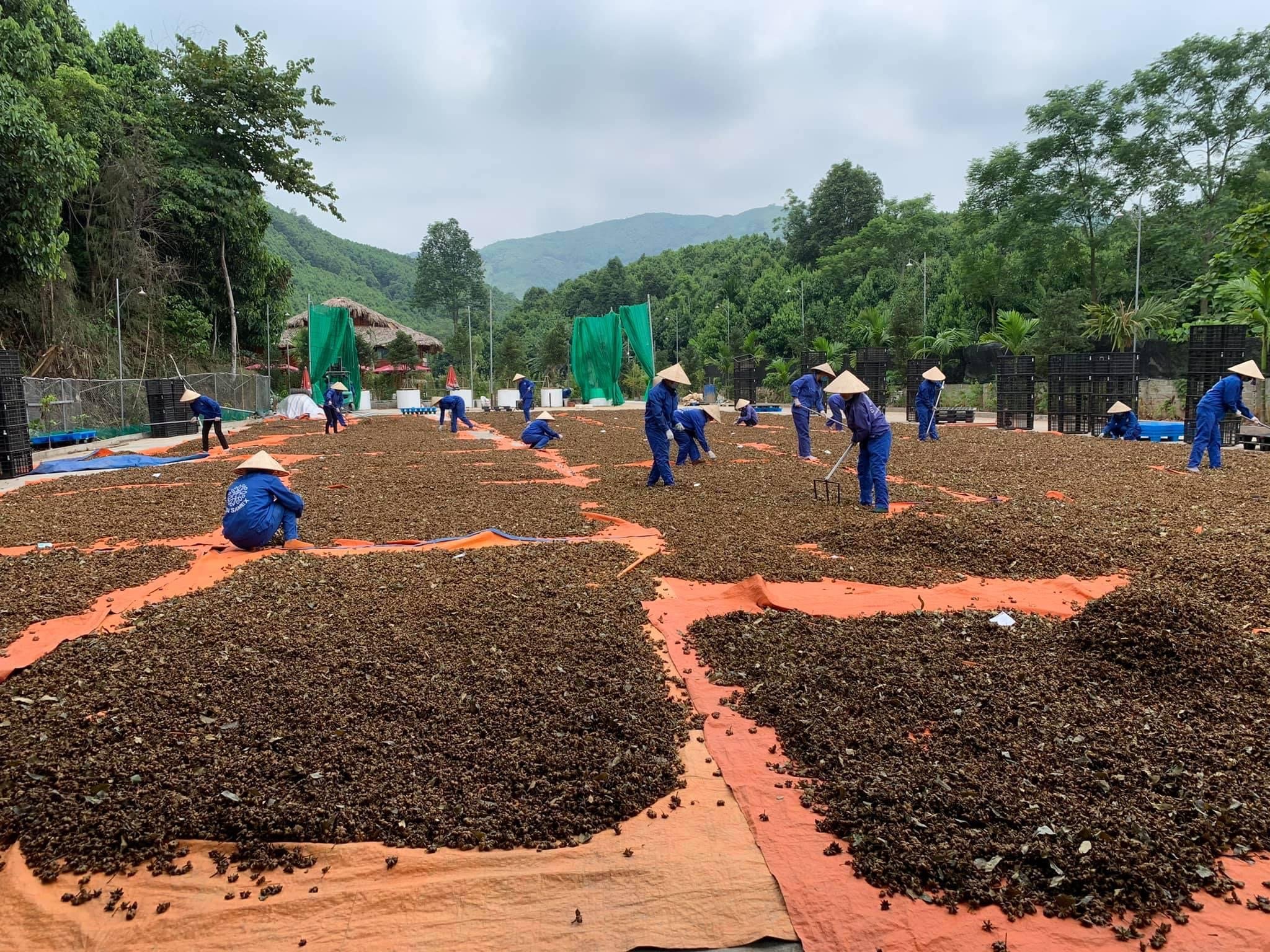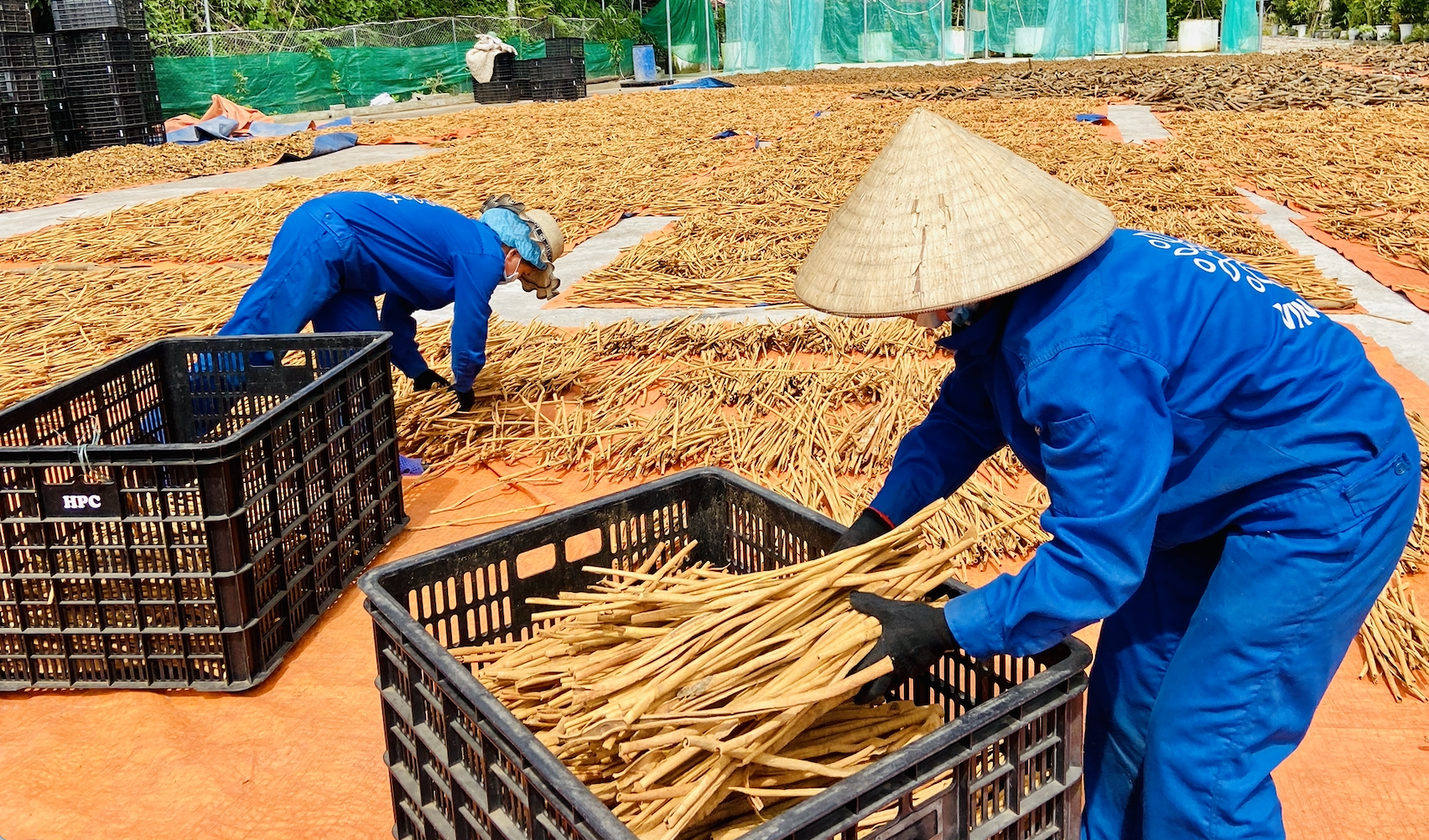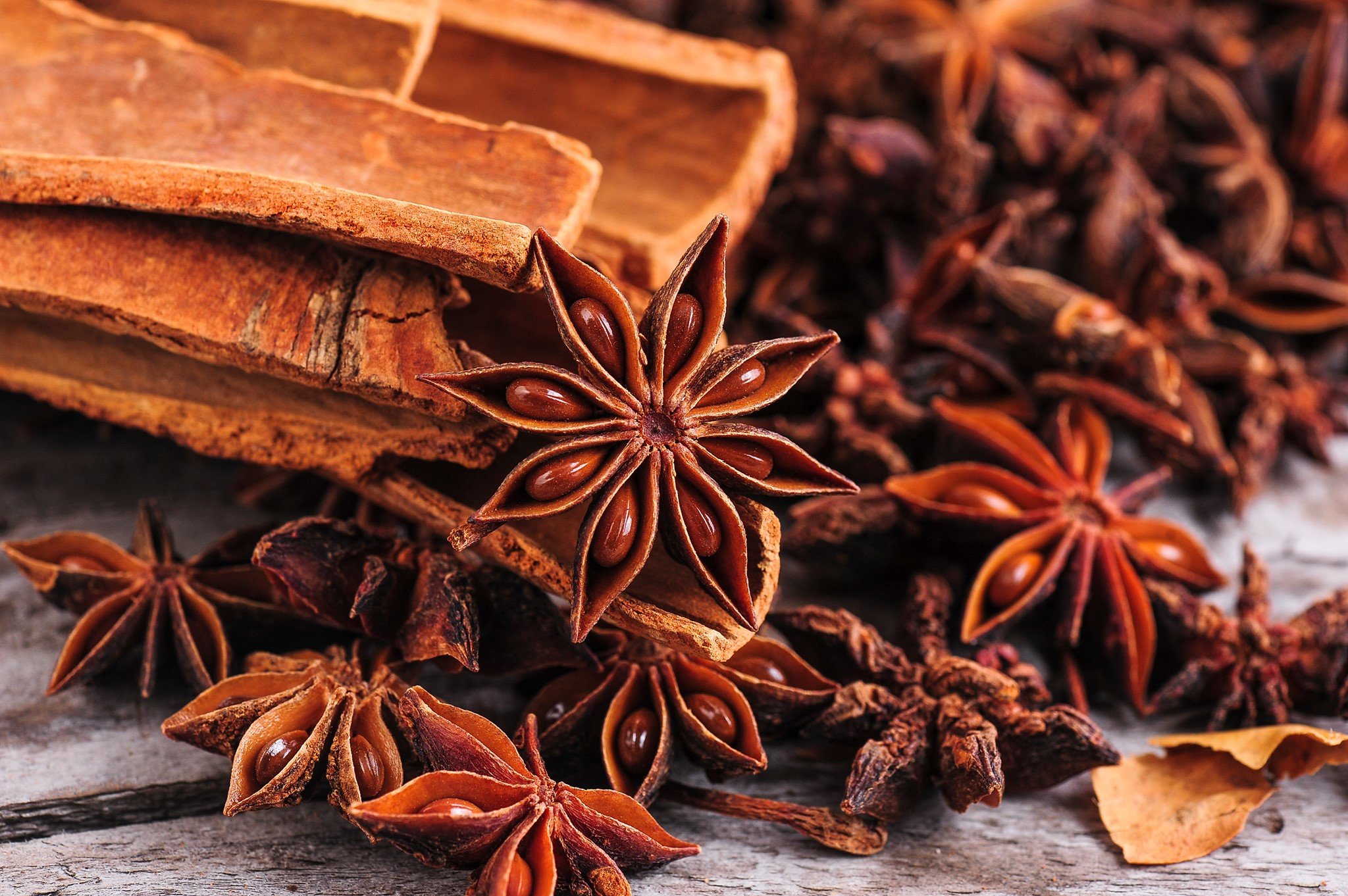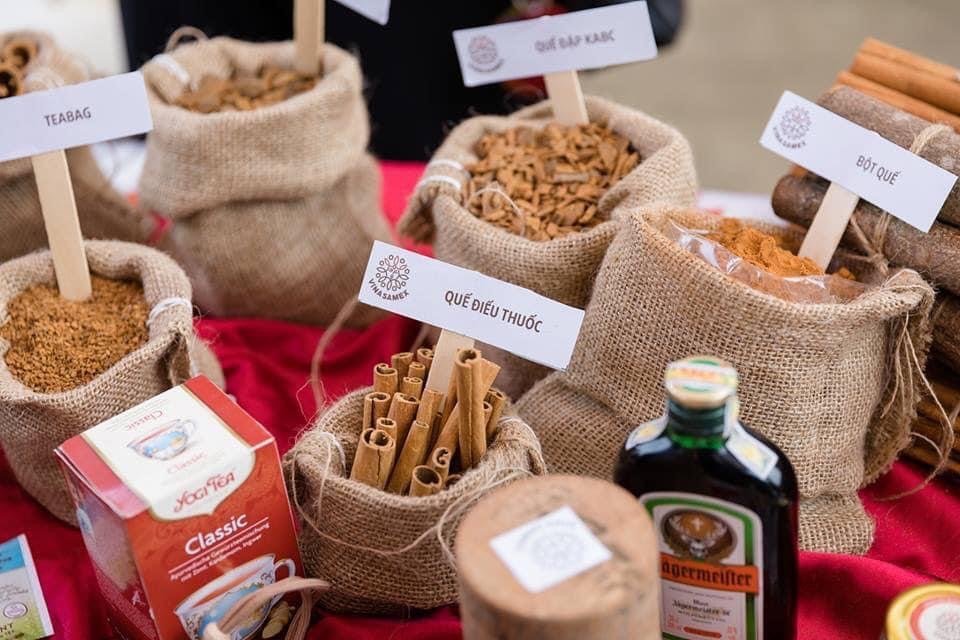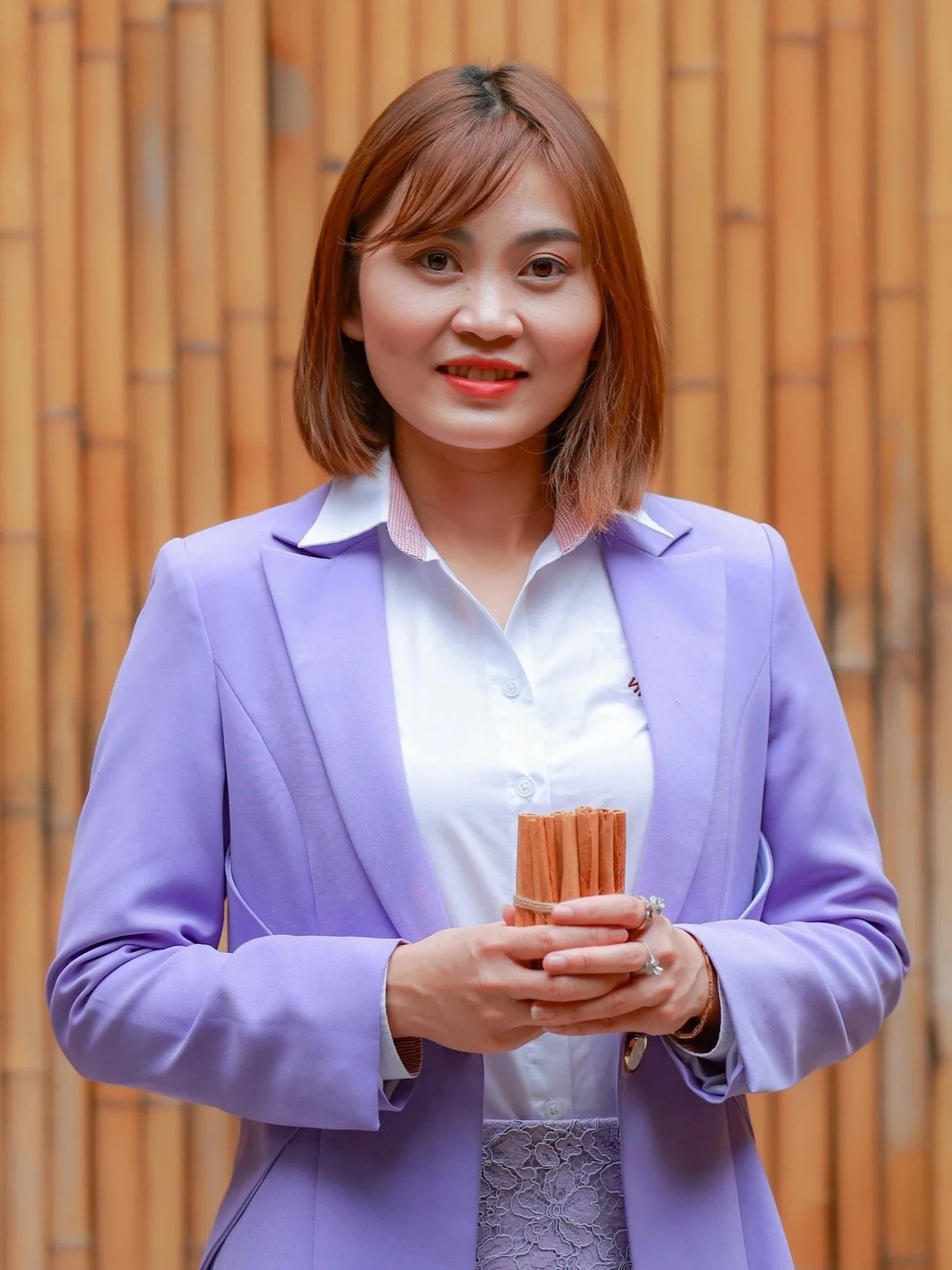Lisa Huyen, CEO of Vinasamex
For people who may not have heard of Vinasamex how would you describe your company?
Vinasamex., JSC is a leading enterprise in Vietnam which manufactures, processes and exports products from cinnamon, star anise and other organic spices.
Cinnamon and star anise are two of Vietnam’s most important products, but they have not been promoted widely. In 2012, Vinasamex., JSC was officially established to export cinnamon and star anise to countries such as India, Bangladesh. We saw that many countries in the world did not know that Vietnam had these products. In 2015, Vinasamex began to direct exports towards the EU, the United States, Japan, and Korea. The company started also on its journey training farmers to cultivate cinnamon and star anise with organic processes. Traditional farming habits of the ethnic minorities are often not aligned with organic practices. To create trust, Vinasamex makes a commitment to purchase products at a higher price if the farmers obey organic farming principles.
We have been working now on organic cinnamon and star anise cultivation across 4,200 hectares with more than 3,000 farming households in Yen Bai, Lao Cai, and Lang Son provinces. And the company continues expanding to other provinces in Vietnam. We also have three factories which are located in the core cultivation areas of cinnamon and star anise with a processing capacity of up to 2,000 tons of dried final products per factory.
Vinasamex is dedicated to bringing benefits and a prosperous life to each farming household, bringing long-term cooperation, increasing income from cinnamon and anise products, and supplying global importers with the highest quality organic products.
In terms of ethical sourcing of cinnamon and star anise, what challenges to preserve biodiversity do you face and how do you tackle them?
Vinasamex feels biodiversity conservation relates in many important ways to socio-economic development in the raw material areas that we are working in. Challenges to biodiversity include encroachment on natural forests, deforestation for cultivation use, chemical fertilizers and pesticides, hunting wild animals, invasive species, and waste from daily-life and production activities that cause harm to the environment.
For each challenge, we focus on specific solutions, but overall we try to raise the awareness of people in the cultivation areas, including workers. We do regular trainings, and this takes time. We have 120 team leaders that do regular monitoring and communication about the practices that we must promote. We explain the principles and also the rules. We also have developed a detailed Biodiversity Action Plan with a series of activities to be carried out in the next five years.
How do you ensure Vinasamex's work is supporting and improving livelihoods of poor local communities in rural areas of Yen Bai and Lang Son provinces, Vietnam. Is there an achievement or contribution in this area that you are most proud of?
Shifting the business strategy of exporting cinnamon, star anise and spices from the mid- and low-end markets to high-end markets which requires higher quality has created a big development step not only for Vinasamex, but also for elevating the position of Vietnamese cinnamon and star anise for international markets, such as in the aromatherapy sector.
With rising demand for these spices, Vinasamex has actively developed more cultivation areas and built more factories to serve production activities. This is creating jobs for hundreds of formal workers and thousands of seasonal workers.
Farmers in our value chain of organic cinnamon and star anise remain committed because our company agrees to pay at least 10% higher than in the market, contributing to a more stable income for people.
We uphold good working conditions on our factories, contribute to local projects such as supporting local education, housing and infrastructure. We also help 1,200 women access financial resources independently and have more power in work and family. These actions, little by little, are creating positive results, and changing the face of the highland countryside in the northern mountainous provinces of Vietnam.
Finally, Vinasamex is also working on improving product value by diversifying product lines and creating higher value products. The income of many households has increased from 7 million dong in 2015 to now 150 million dong/year, contributing to hunger eradication and poverty alleviation, changing the awareness in a large region in Vietnam of biodiversity conservation.
Was it difficult as a young businesswoman to impose your innovative views to the farmers used to traditional methods?
When Vinasamex wanted to develop an organic agricultural value chain in cooperation with farmers, many people said I was crazy. They said they could make a good profit through their traditional way of business, and did not need to spend time or money on developing organic areas or training farmers.
Ignoring these doubts, I was determined to improve the value of cinnamon with a firm belief that “If I do well at the root of things, these new values will be sustainable".
Cinnamon and star anise growers are mainly ethnic minorities, with limited knowledge, and low rates of literacy. Growers expressed doubts, questioning why they had to change the process from what worked for generations. They had concerns they would not see benefits from the change.
It took time but we managed to convince a few farmers. At first, only these few signed a contract with Vinasamex and followed the company's processes: from planting, caring, harvesting, then transferring raw materials to the company's factory for processing. However, after about two years, the households cooperating with us have had a clear benefit: their income has increased. Then many other households signed up to follow. People's lives are improved, and they have increased trust of Vinasamex.
Vinasamex holds different certifications including organic and UEBT/RA Herbs and Spices certification. Can you explain what is for you the strategic importance of having UEBT/RA certification on top of the organic one?
After many years of cooperation with customers in Europe, the United States and many other countries, Vinasamex understands very well that customers not only buy quality products, but also pay great attention to their contributions to society, the community and environmental protection.
Doing business with Vinasamex is not just about profit, but after all, what Vinasamex cares about is how those activities positively impact the community. These certifications are not only a "passport", but also have strategic importance, shaping the development of Vinasamex in the future, towards becoming a leading flavor supplier in the world.
Vinasamex is proud to be a member of UEBT, and we are especially proud to achieve UEBT/Rainforest Alliance certification for our ingredients. It not only helps Vinasamex to be more reputable, but also affirms the brand and helps us to be more motivated to create positive social impacts. In particular, we are re-committed to preserving primeval forests, as well as special cultural features. We also are committed to strengthening the regional specialty ingredients and using these to reach more customers.Certainly, with UEBT/Rainforest Alliance herbs and spices certification, it will help Vinasamex to go further on the world map of flavors and spices.
At Vinasamex you have ownership of the sustainability strategy as the CEO. Do you believe that sustainability goals must come from the top?
As the CEO and co-founder, I do own the sustainable strategy for the business. I realize that the economic development needs to go hand in hand with preserving the environment and our culture.
Sustainability goals require a combination of both top-down and bottom-up approaches, as well as monitoring, evaluation, training, and strong incentives for action at all levels.
Enterprises need to raise awareness in the field of sustainable agriculture and provide regular communication and training across our operations. We also must strongly support farmers through our pricing policy and through subsidies for input materials and labor tools.
Businesses must work with local people towards our sustainability goals including social actions focused on hunger eradication and poverty reduction, livelihood improvement, and improved social welfare.
Lisa Huyen, CEO of Vinasamex


